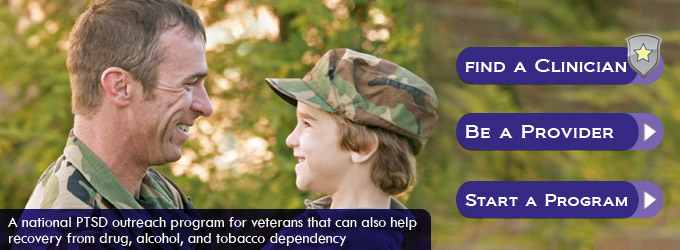
About Our Programs
The EEG Institute, a world leader in neurofeedback research and training, and Homecoming for Veterans is offering this cutting-edge treatment, at no cost, for veterans suffering from Post-Traumatic Stress Disorder (PTSD) through a network of clinicians across the country. »
HC4V at The Salvation Army
 Retrain The Brain
Retrain The Brain
by Jared McKiernan | April 29, 2016
Neurofeedback treatment is helping veterans, recovering addicts and everyone in between find peace from the noise within.
On the campus of a homeless shelter billed as “one of the largest west of the Mississippi,” it's a small, dark room comparable in size to a walk-in closet that's generating much of the buzz.
read more »
A Veteran's Story, told on Veteran's Day before a large audience.
by Casey Stephens | December 17th, 2018
 First and foremost, thank you for this opportunity. I am here today to tell you my story.
First and foremost, thank you for this opportunity. I am here today to tell you my story.
In early Spring of 2005, I was enrolled in college of the Redwoods in the automotive program. I was struggling with things personally in my life. My grandmother had just passed and I had been trying to cope with her death by drinking all the time. Had a girlfriend and a year earlier my first child was born. But my life was in shambles. I was in my early 20's and had no real direction in my life at that time. read more »
Fight or Flight: Using Neurofeedback to Treat PTSD & Substance Abuse
The Salvation Army Bell Shelter in Los Angeles, CA, has implemented a new tool to help people get back on their feet: Neurofeedback.
An emerging & non-invasive treatment, Neurofeedback helps treat the effects of Post Traumatic Stress Disorder (PTSD) and substance abuse.
Watch the video to see some of the incredible stories of change happening at the Bell Shelter, and to learn how neurofeedback works, and why it's been so effective.
Regaining Control: Neurofeedback & PTSD

July 3, 2012
Pentagon's Brain-Powered Videogames
Might Treat PTSD by Katie Drummond
Read story at wired.com
How Neurofeedback Can Help
Neurofeedback (EEG Feedback) is training in brain function based on information derived from the EEG (electroencephalogram). With such training, rapid recovery can be achieved for the relief of PTSD symptoms that include sleep problems, pain, irritability, anger and rage, as well as cognitive deficits. The training can also help soldiers recover from drug, alcohol, and tobacco dependency.
The training is based on reinforcement of better regulated brain behavior as judged by the EEG. The repetition of this exercise for a number of thirty-minute sessions leads typically to improved cognitive function and improved emotional control.
The work is success-oriented rather than deficit-focused. It is a fitness strategy that avoids the jargon of mental health, and suits the soldier's natural orientation toward a training and fitness program.
Veterans who have been through the program have shown tremendous positive benefits. A veteran who had not slept more than 2 hours at a time was sleeping through the night after just 7 sessions, without medication. This same veteran had avoided the movie theater because that was the location of his first flashback. After 12 sessions, he saw a movie for the first time in 8 years. Another veteran was able to save his marriage and family by calming down his anger and his need to control everything. Behaviors that had been appropriate in wartime were destroying his home life. Veterans are getting their lives back with neurofeedback. Even a veteran from WWII found his sleep restored after not having slept well since 1945.
Substantial functional recoveries and even functional enhancements are routine. We urge veterans to avail themselves of this free service. There is no need to live with nightmares, flashbacks, loss of emotional control, lack of energy, and inability to plan for the future. Even chronic pain can be substantially helped. And if you are suffering physical injuries, your brain should not also be your problem. When it comes to symptoms you have not had before, stop thinking it's you. Start thinking it may just be a matter of your brain, and that remedies are available and highly accessible. (P.S. The VA offers only very limited access to neurofeedback at this time.)


